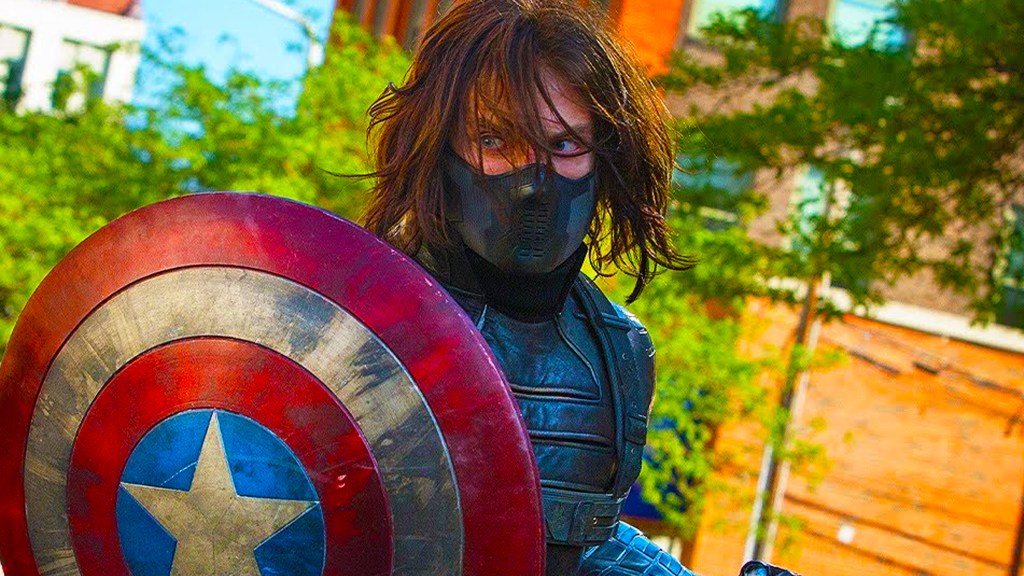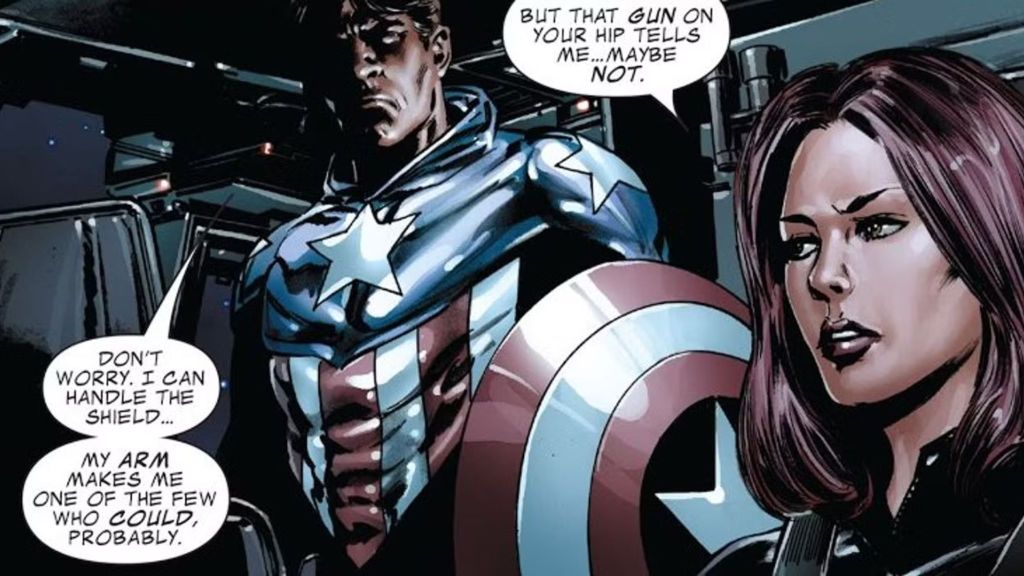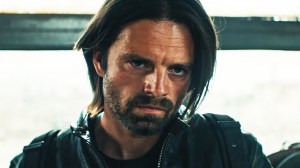For decades, the name Captain America has been synonymous with Steve Rogers. His story is one of unwavering patriotism, courage, and a moral clarity that stands as an aspirational ideal for the nation. He is the symbol of America at its best: a humble man granted great power who never once wavers in his pursuit of truth and justice. But a symbol is not always the same as a reflection. After Steve’s apparent death in the aftermath of the original superhero Civil War comic arc, his best friend Bucky Barnes took up the mantle. What followed was a brief but deeply transformative period for the character and, by extension, the symbol of Captain America. Bucky’s tenure as the star-spangled hero revealed that the nation’s true spirit is not defined by pristine perfection, but by a continuous, difficult struggle toward redemption and self-improvement.
Videos by ComicBook.com
The Nation’s True Character Is Not Found in an Unblemished Past, but in a Painful Reckoning With Its Own Mistakes

The fundamental difference between Steve Rogers and Bucky Barnes as Captain America lies in their history. Steve’s past is a bedrock of virtue. He was a scrawny kid from Brooklyn who never sought fame or power, only the chance to fight for his country. He represents the purest form of American idealism—the can-do spirit of a nation united against a common enemy.
Bucky, on the other hand, took up the shield not because he wanted to, but because he could not bear to see the ultimately symbol his best friend carried for decades used by anyone else. Though he was burdened by a dark and traumatic past and well aware of his own flaws, Bucky took on the responsibility not for his country, but for Steve Rogers. As the Winter Soldier, he was a brainwashed assassin, a living ghost responsible for countless atrocities committed on behalf of the shadowy organization known as HYDRA. This wasn’t a choice he made, but it was a history he was forced to own. In this way, Bucky is a more accurate mirror for America itself.
The nation’s history is not a fairy tale of pure heroes and righteous causes. It is a complex, often painful journey of both success and failure. It includes the grand ideals of its Founding Fathers, but also the brutal reality of slavery; the promise of freedom and the stain of oppression; the noble fights and the quiet compromises made in the shadows. To ignore this complexity is to embrace a fantasy and disregard the history upon which America was built, but to confront it is the path to growth and do better than past generations. Bucky, haunted by the atrocities he committed, represents the difficult, ongoing work of facing our collective historical traumas and seeking a path forward, not as an innocent, but as someone who is actively trying to be better.
A True Hero Must Accept That Moving Forward Requires Confronting the Darkness Within Themselves

Steve Rogers’ heroism is a testament to the power of a good heart and an unshakeable moral compass. He is always certain of what is right. Bucky’s heroism is something far more complicated. When he takes up the shield, he is not just fighting villains; he is fighting his own mind. Every time he throws the shield, every time he stands for a cause, he is battling the lingering conditioning of the Winter Soldier. He struggles with his own capacity for violence and his inability to easily forgive those who have wronged him or others. This is a far more compelling and human struggle, as America, too, is a nation that grapples with internal conflict. Americans are a people of diverse beliefs, histories, and deeply held grudges. The path forward is not always clear or easy, and it requires one to constantly confront their own biases.
Bucky’s inability to simply move on from his past as the Winter Solider, and his struggle to trust and forgive others is not a weakness; it is a profound strength. It reflects the hard work of living with trauma and trying to build a better future without forgetting the pain of the past. His hero’s journey is not about maintaining perfection, but about the messy, painful, and deeply American process of redemption. He embodies the truth that to be a hero isn’t to be a god among men, but to be a person who, despite everything they have endured and everything they have done, still chooses to stand up and fight for what is right.
While Steve Rogers will always be the quintessential Captain America, the idealized icon that reminds us of what we can be, Bucky Barnes is the reflection of who we actually are. Bucky’s time with the shield showed us that a symbol can be more powerful when it is imperfect, when it is human, and when it is earned through struggle and a painful journey toward a better self.









